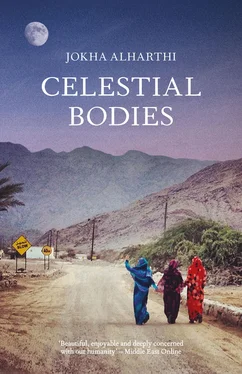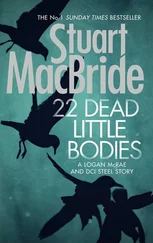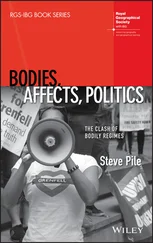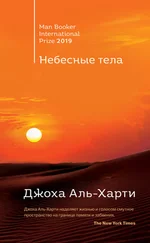It didn’t take long for Asma to discover all of this. Nevertheless, she absorbed it calmly and methodically, her feelings already composing an attitude of sceptical affection. Her sentiments were balanced and steady, completely unlike his. At first he was very conscious and careful to adhere to the orbit he had traced out, and he was always checking to be certain that Asma was right there, orbiting in his wake, and watchful above all that she never veered off course. In his own fashion, he did fall in love with her.
As the days passed, his incandescent feelings did not dim, either. He held her high in the firmament. She was a rare wonder, a radiant and translucent butterfly who reflected the light his love generated. She was the flash of perfection that confirmed his sharp sense of the world. But Asma was no butterfly. She wasn’t one to dive into the glare only to find herself scorched. She had only to calculate a prudent distance. She had already learned that there were times when the fire would go cold and Khalid would slip away, crawling or perhaps running to his warren, drawing that circle around himself and seemingly forgetting Asma entirely. He might stay inside that impervious little circle of his for days, weeks, sometime months. Then suddenly he would once again become Asma’s passionate lover, so much so that his passion tormented her, pulling her inside a hellish paradise, a hard-to-sustain world of absolute pleasures. How ecstatically she blossomed in the early days of his love, astonished that in a matter of days she lived what she had not lived in her whole lifetime before. She loved him with a startling, inexplicable thirst and a craving to feel everything.
Unlike her husband, though, she was not a creature of impulse. She was not in any hurry to embrace all the joys of love in one gulp of intoxicating ether. As he was growing quiet, her love was pushing its roots deep into the earth, ready to grow, one shoot upon another. At first when he went into his shell Asma was bewildered and upset almost to the point of giving in to her despair. But as time passed and she accumulated experience along with wisdom and social sense, she learned how to accommodate to the situation. She did love him, too — this sceptical, careful, slightly distant love. But she began taking precautions. She formed her own celestial orbit. In the end, and with a great deal of patience, self-examination, and occasional sacrifice, they learned to create enough space that each could orbit freely. When they collided, and if they fused, Asma and Khaled knew it was only a temporary disruption, and that each path would return to its own course.
With the years, children, an accumulation of friends, and her books, Asma made her peace with Khalid’s art and self-absorption. She left it alone, the circle he drew round himself, remaining inside contented with nothing more than the wood that would soon receive his paint. She learned patience with his horses: their hard eyes, thin bodies, straining muscles. She could deal with the invariable shades of brown, black and white. She made her peace with it, all of it. In return, the artist had to reconcile himself with the fact that she was her own constellation, independent and whole, a sphere unto itself.
When the children began to arrive Asma ordered a bed made to her specifications, wide enough to hold all of them. They slept there, limbs entangled as if they had all sprouted at once from her body which lay there among them. She persuaded the artist that, once branded by childbearing, a mother’s embrace could no longer be a lover’s embrace. Now it was about giving milk and security to these open mouths, and waving protective scents in front of these tiny noses.
Every birth confirmed to her that this was what her life meant: hearing the sharp scream of life from a tiny body, so finely sculpted in all of its details, which had come out of hers. Time after time, until whenever her body stopped making new life. When Asma reached her forty-fifth birthday, her body had sprouted fourteen young plants, living for light and colour, in the artist’s house, even if they took in that light away from the painter’s remote paintbrush, poised in endless thrall to the bridles of his silent horses.
On the 20th of March 1986, when my father had his first heart attack, London was five years old and Salim was two. On the 26th of February 1992 he died in the Nahda Hospital. My son Muhammad was one year old and, though we didn’t yet know it, he would turn out to be autistic.
I lived six years in constant terror at the thought of my father’s death. But when he did die, it felt like he had already died several times. The last of his deaths gave no relief, no mercy. It did nothing to dispel my terror.
In the first weeks after his passing I could not sleep. I was too angry. Rage crept like a slow lit fuse through my blood, burning me as it burrowed deeper. Over and over, obsessively, I sketched the scene in my mind: me, standing next to his bed, where he lay covered with a white sheet, the odour of antiseptic everywhere, people coming in little groups into the white room, people taking him away and leading me to one of their little carts, no one offering me any condolences. The dead man must be buried first and before anything else could be said.
We arrive in the village and they take him inside the house. I hear Zarifa screaming. People are filling buckets of water, erecting the ritual palm-branch benches in the west courtyard and putting up screens. Someone ushers me in there with my father’s body because I’m the one who should wash it, all by myself. Mayya’s father, Azzan himself, hands me the water and instructs me how to rub my father’s body, part by part, limb by limb. Judge Yusuf’s son Abd al-Rahman helps me dry him off, perfume him, and wrap him in the shroud. People lift him into the bier and they set one corner of it on my shoulder. We march to the cemetery, west of al-Awafi. I can hear people saying there is no God but God in his honour and also the sceptical whisperings. Now Suwayd has dug the pit and Azzan lowers me into this grave so that I can receive my father’s body and lay it properly on its right side. I take in the moist freshness of the soil down there. I climb up out of the grave so that others can make a layer of stones over the shrouded body before they pile up the earth. Finally they fix a large stone into the ground where his head would be, and everyone returns to al-Awafi.
At home to receive condolences, I’m greeted by one man and the next, and they all ask God to bless my period of mourning and make good come of it. I respond, over and over. God decides how long we live. There’s coffee, lots of coffee, and then large trays of rice and meat. When darkness falls I return to the house, to my father’s room, with nothing but this all-encompassing anger. Seven days of this, and then the mourning period — for visitors, anyway — is over.
Some years later, other details enter this picture. I’ll see my father’s belly tremble slightly under the bucket of cold water. The water will form a small pool, and this pond seeps out to trickle through all the alleys of al-Awafi. The odours of lotus and embalming fluid pervade the damp alleyways, and I will see my father’s index finger lifted slightly, just enough to cause a slight swelling on the white death shroud. I’ll see his hand sweep aside the stones and the soil. Only his hand remains there, outside the grave. I will see Zarifa amputate her own legs and pluck out the white hair on her head.
The planet Saturn was directly ahead. The man standing alone in the desert was ready for it. He prepared the blend of ingredients that went into the smoke to be offered to Saturn. A little saffron, flax and some soiled wool, the brain of a cat. He had already checked carefully to make certain that the reigning sign was a changeable one, that the moon was where it should be, and that Saturn and Mars were both aligned facing the moon. As pleased as he was relieved by what he saw, the man breathed out a contented sigh as there flashed into his mind the woman’s face in the darkness as she left his home. The Bride of the Falaj.
Читать дальше












